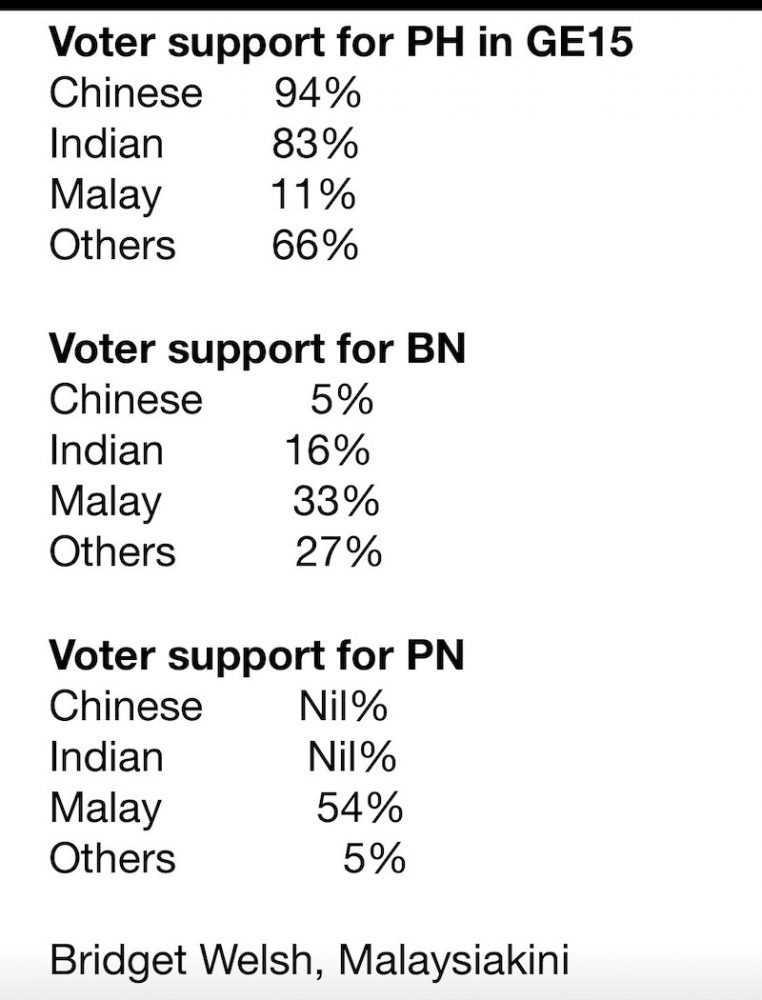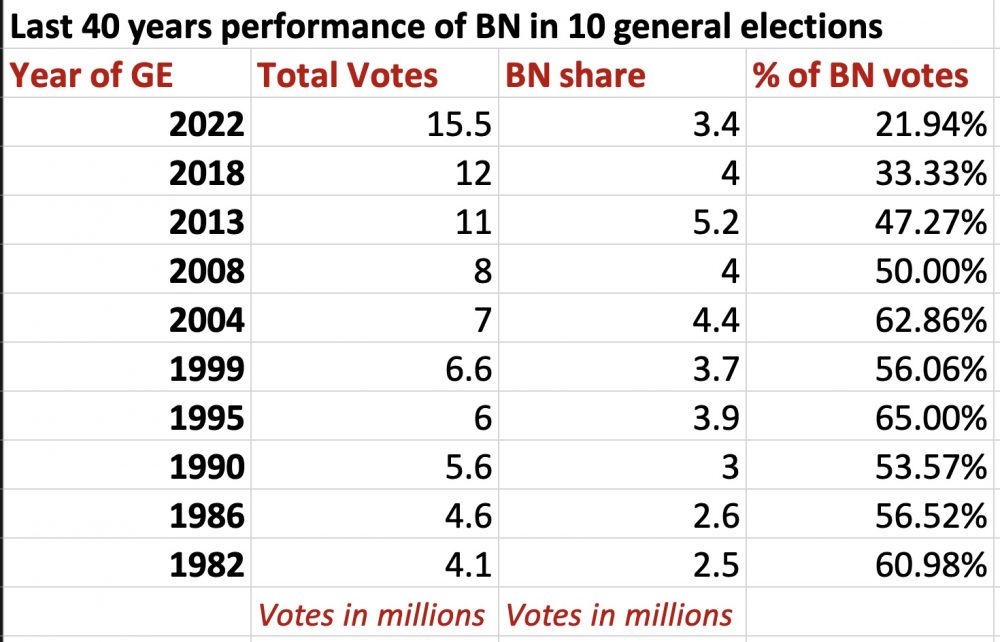The Pakatan government is not really on solid ground

While most of us heaved a sigh of relief at the formation of the Unity Malaysia Government, its stability is still in question – after all, we all know how fickle politicians are.
Philip Golingai, The Star
WELCOME to 2023. Politically, it might be the most heated year yet for Malaysia.
Arguably, two opposing forces in the country are equally strong in terms of parliamentary seats.
In November’s 15th General Election, Pakatan Harapan won 81 seats and Perikatan Nasional 74 out of the 222 seats in Parliament.
Let’s go through the numbers.

Some will argue that Pakatan won 82 seats. That’s correct if you include Muda’s sole seat of Muar, Johor. But that parliamentary constituency was won under the Muda ticket and not Pakatan’s.
So seven MP seats separate Pakatan and Perikatan.
Suppose we include the four seats that Perikatan component party Parti Pribumi Bersatu Malaysia won – whether the winners are currently members or not – on the Gabungan Rakyat Sabah (GRS) ticket in Sabah. In that case, the margin between the two coalitions is three.
The status of those four MPs who left Bersatu to join GRS directly after the elections is still unclear. Dewan Rakyat Speaker Datuk Johari Abdul will decide whether their seats should be vacated.
Bersatu vice president Datuk Seri Ronald Kiandee has written to inform the Speaker that all four were members of his party. Kiandee has argued that their act of sitting in a bloc under Prime Minister Datuk Seri Anwar Ibrahim during the Dec 19 meeting of Parliament constituted “crossing the floor” and violated the MPs’ election promise to their voters.
The Speaker’s decision will be a test of the just passed anti-party- hopping law.
The Pakatan-led government has a two-thirds majority – to be exact, it has 148 out of 222 seats. The Federal Government is backed by Barisan Nasional (30 MPs), Gabungan Parti Sarawak (or GPS, with 23 MPs), GRS (six), Parti Warisan (three), independents (two), Parti Bangsa Malaysia (one), Parti Kesejahteraan Demokratik Masyarakat (one) and Muda (one).
A two-thirds majority is a “strong, formidable and convincing” majority. But it can fall like a house of cards if Barisan pulls out of the government, and other parties follow suit.

I saw an argument made by a supporter of the Umno forces that are against party president Datuk Seri Dr Ahmad Zahid Hamidi stating that even if Ahmad Zahid were to lose the party’s top post, the Pakatan-led government wouldn’t fall. He argues that even if an anti-Anwar Umno president is elected, the political math is: 148 MPs – Barisan’s 30 MPs = 118 MPs.
That number is a simple majority so the government would survive.
The argument by the anti-Anwar Umno supporter is a trap: With a 118-seat majority, it only takes seven disgruntled MPs from the smaller parties or even GPS for the government to fall.
It is possible, as initially Perikatan chairman and Bersatu president Tan Sri Muhyiddin Yassin said he had the numbers – 115 MPs – to stake a claim to the prime ministership. GPS, a dozen Barisan MPs, Parti KDM and GRS supported him.
But supposedly demi rakyat (for the people), they changed their minds and backed Anwar for Prime Minister.
Malaysian politicians are known to be fickle. So far, small parties with one MP, like Parti KDM, PBM, PBS, and Sabah Star and Independents have not been “rewarded” with positions (preferably in government-linked companies) that they can use to “help” the rakyat.
Demi rakyat, they can switch sides again.
Currently, the Pakatan-led government and Prime Minister Anwar and Umno president Ahmad Zahid have the power of incumbency.
But Perikatan can’t be ignored. Of the 74 seats it holds, 72 are Malay-majority constituencies.
And since Anwar’s appointment as Prime Minister, Perikatan has been breathing down the neck of the Pakatan-led government. Its big victory in Padang Serai, a Malay-majority seat in Kedah, which PKR of Pakatan held for three terms, shows that the Green Wave still has momentum.
The Green Wave will likely turn into a Green Tsunami in the three state elections in the Malay belt of Kedah, Terengganu and Kelantan. Perikatan might trigger snap polls before Ramadan in March to ride on that probability.
It will be Green Wave versus Red Wave (the colour of Pakatan’s flag) plus a supporting role by Umno in the states whose assemblies have to be dissolved in the middle of 2023 – Negri Sembilan, Penang and Selangor.
Will the Green Wave sweep these red-dominated states?
Let’s look at Penang.
Optimistic analysts say there is indeed a possibility (their argument is “anything is possible” in politics) that Perikatan could win the state.
“Perikatan needs to win 17 Malay-majority seats and Gerakan needs four seats. That is enough to form the state government,” an analyst told me.
“The possible Perikatan poster boy for chief minister is a squeaky clean Gerakan politician,” he added.
Right now, the prospect of a Perikatan victory in Penang is laughable. But 2022 has taught me that politics is the art of the impossible.
The six state elections in 2023 will test Anwar’s tenure as Prime Minister. Make that seven state polls if Sabah, which had an election in 2020, decides to dissolve its assembly too.
“X is meeting Anwar tonight. He wants to convince the PM that he has the numbers to form the Sabah government,” a source in GRS worriedly told me last week.
“I don’t think X has the numbers. But I don’t rule out the fact that he could get parties that haven’t been given a post by the GRS government to support him,” I replied
This year will be panas (heated), politically. Happy hot New Year!

